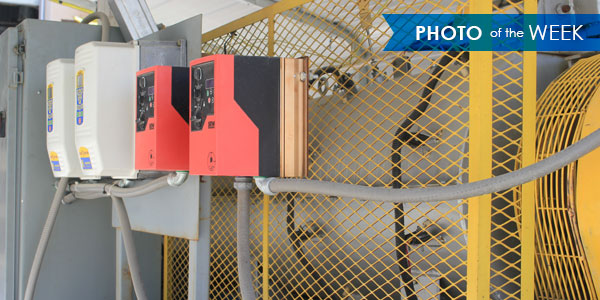Our photo this week comes from the FEECO Lab, and showcases the lab’s pilot scale indirect kiln.
Indirect kilns are used for a variety of applications and materials. In general, there are a few reasons why it may be desirable to utilize an indirect kiln over a direct-fired kiln. These might include, but are not limited to:
- The material to be processed is extremely fine and could otherwise become entrained in process gas if a direct-fired unit were used.
- The processing environment must be tightly controlled, such as when processing materials that cannot come into contact with oxygen, or when a material may form an undesirable compound with nitrogen at high temperatures.
- The burden of off-gas must be minimized, such as when processing spent activated carbons.
Indirect kilns are a valuable processing tool for applications such as those listed above. The pilot scale indirect kiln in the FEECO Lab allows customers to test out their thermal processing applications before taking further steps toward full-scale production. Pilot scale testing in the FEECO Lab offers valuable information, allowing customers to work out process variables and determine the feasibility of their intended process.
The FEECO Lab is equipped with a variety of equipment to allow for comprehensive thermal testing. In addition to the continuous indirect unit, the FEECO Lab also offers a batch indirect kiln, as well as both a direct batch kiln and pilot direct kiln. Furthermore, FEECO engineers can use process data obtained in pilot tests to scale-up the process, and then build custom equipment to suit the process.
For more information on indirect kilns, or to learn how thermal testing in the FEECO Lab can benefit you, contact us today.


